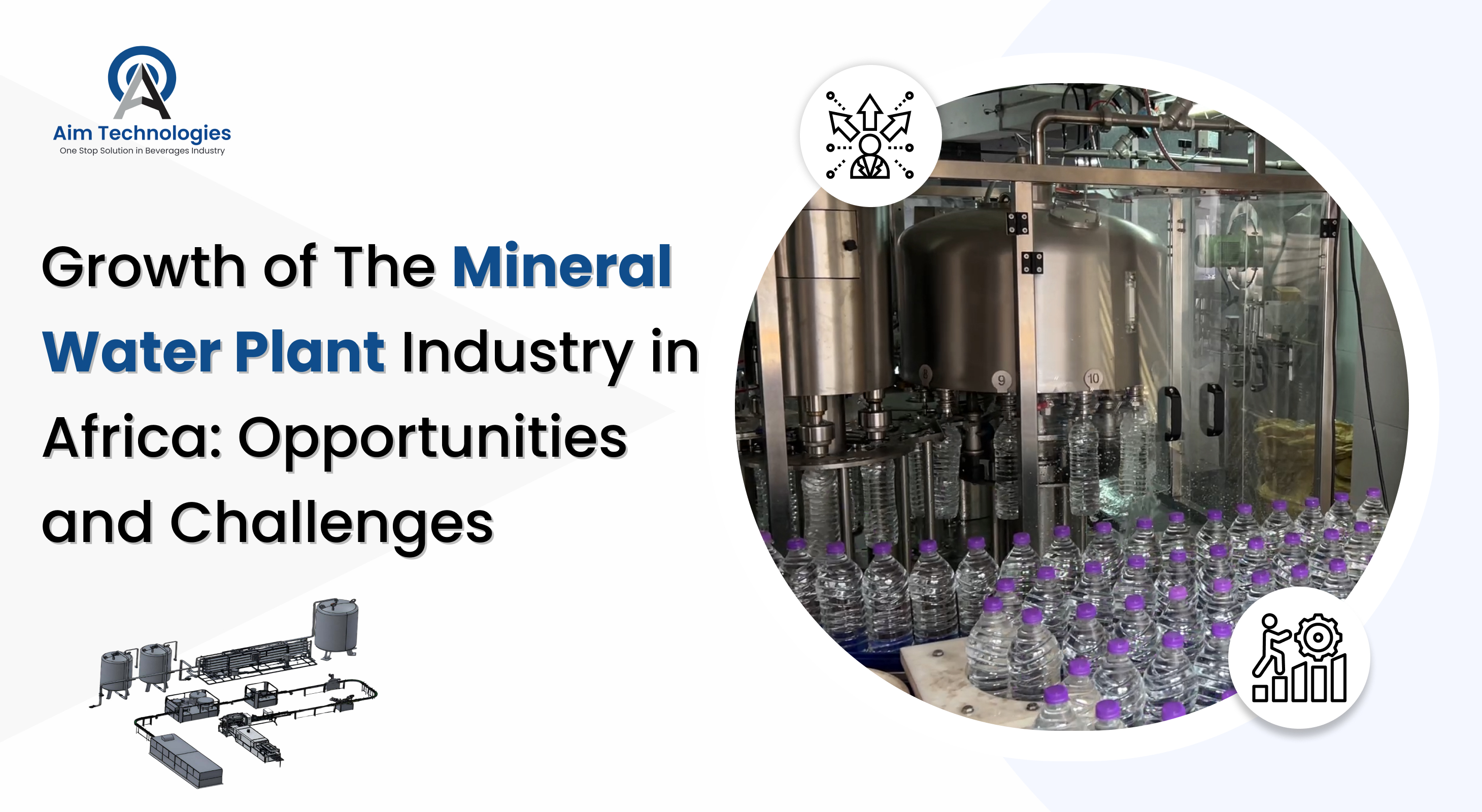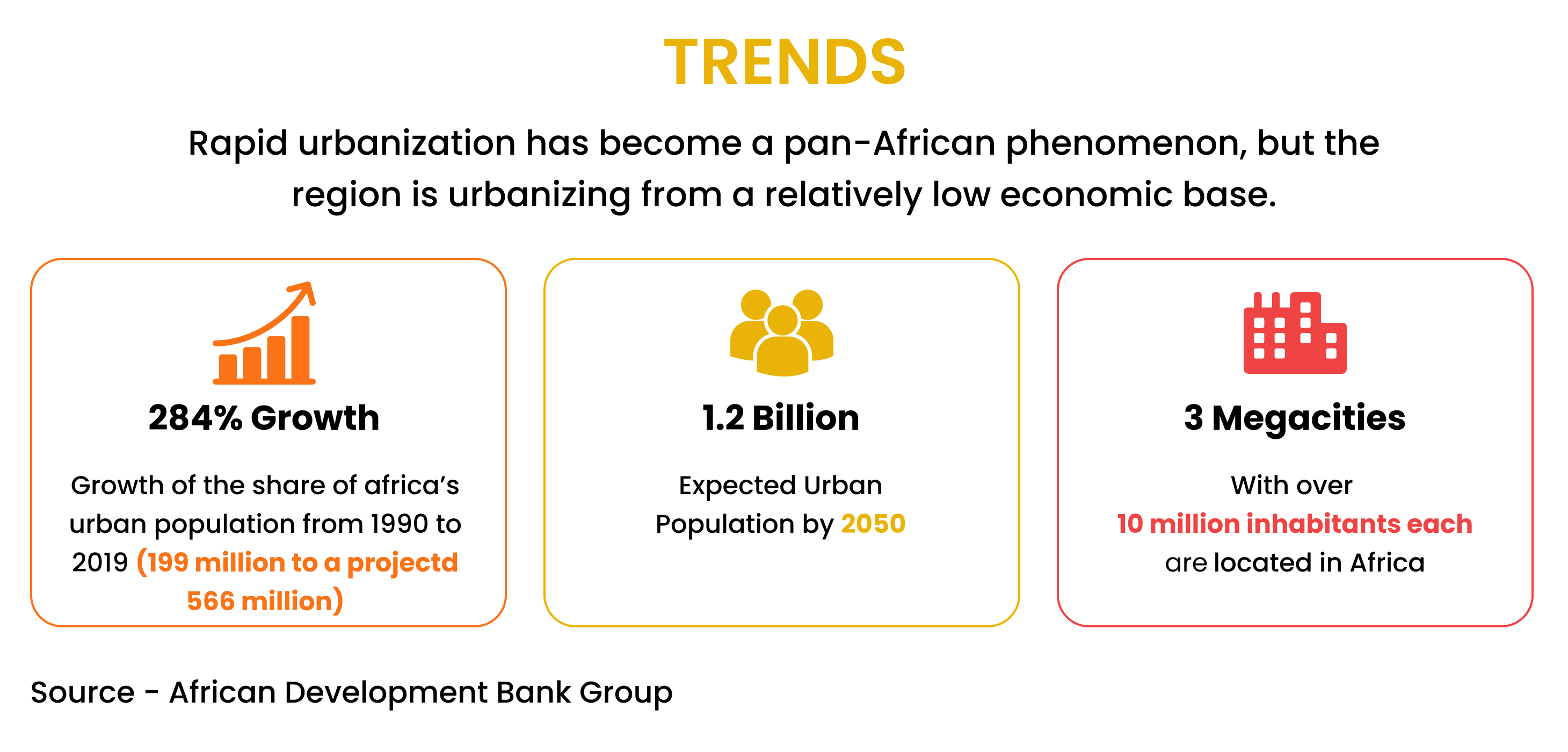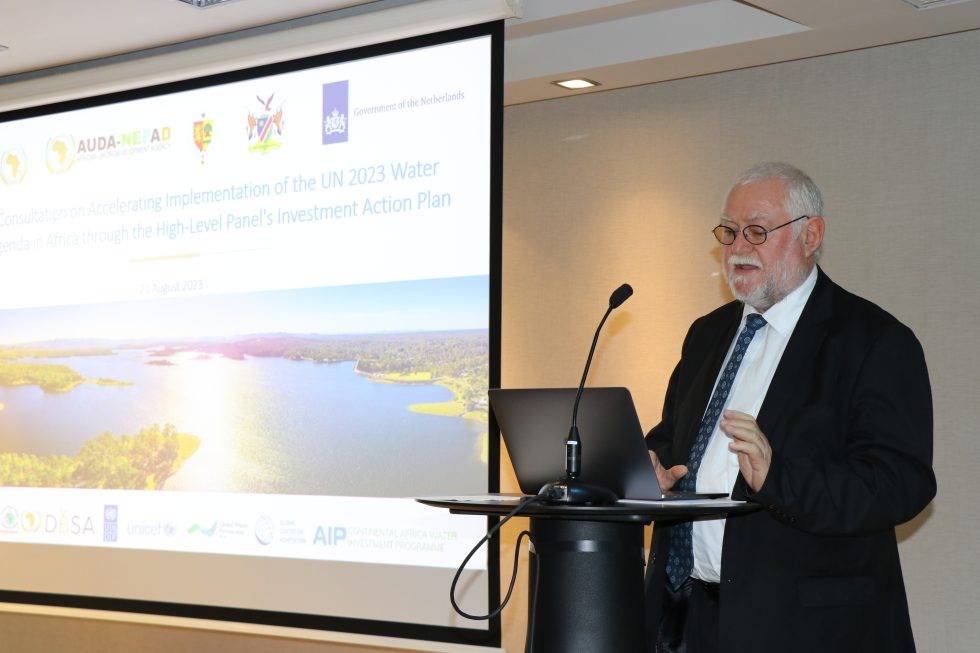
Are you considering investing in the mineral water plant industry in Africa or trying to understand its booming growth? If so, you're not alone.
The demand for packaged drinking water plants and the number of mineral water plant manufacturers across the continent is growing and yet there’s a huge enough potential for more players to enter the booming industry.
However, along with these opportunities, there are also a handful of challenges in this sector – there’s a need for all of us to come together and overcome them together.
To get a full understanding of the real-life scenarios and the subject, let’s walk through a few important aspects such as -
There used to be a time when the water plant industry was considered luxury in Africa but now there’s a notable rise in the demand for packaged drinking water plants.
The main reason behind this shift is because of the increasing concerns over water contamination and access to clean drinking water in several African regions.
Additionally, health issues such as waterborne diseases, which further emphasize the need for clean water. With the urbanization and industrialization of many African cities, there has also been a strain on existing water infrastructure, making access to safe water even more difficult.
And in order to get healthier and safer water, people in Africa have started adopting packaged drinking water.
As the popularity of bottled water is increasing, there’s a clear path for mineral water plant manufacturers to meet this demand and create an impact.
But is the lack of clean water in the rural areas of Africa the only reason for this industry to grow? Let’s find out in the next paragraph.
Other than the lack of clean water access in the rural areas of Africa, there are many other reasons too which are playing a huge role in the growth of the mineral water plant industry in Africa.
Here are some of the most prominent factors that are contributing to this growth -
Urbanization -

As there’s a rapid growth of African cities, traditional sources of clean drinking water struggle to keep up with the increasing population. This creates a gap of clean healthy water which bottled water is filling.
Health Consciousness -
With time, African consumers are becoming more health conscious. The trend towards bottled water is not just about convenience but about a shift towards better hydration and wellness. As people are becoming more aware of the health risks associated with impure water, they want to have clean water - making packaged drinking water an appealing option.
Impact Created by Mineral Water Plant Manufacturers -
In addition to urbanization and health consciousness, mineral water plant manufacturers are solving the issue of water contamination which is a significant challenge in many African regions.
Due to this significant change, African people are turning towards packaged drinking water bottles and contributing hugely to the growth of this industry.
Increasing Disposable Income -
Last but not least, disposable incomes are rising in Africa – especially in urban centers and because of this more and more people are willing to pay a premium for quality bottled water.
The growing upper middle class, coupled with rapid urban development, creates fertile ground for mineral water plant manufacturers to expand their operations.
With so many drivers that are driving the growth of packaged drinking water plants in Africa, let’s have a look at the pool of opportunities in the African mineral water market.

Opening the global consultation on behalf of the Panel's Co-Chairs, Hon Calle Schlettwein, Minister of Agriculture, Water and Land Reform for the Republic of Namibia, said:
Africa has massive opportunities, her enormous resource wealth, including water, her potential to become the breadbasket of the world, her youthful population, her potential for green energy, to mention a few. We must now convert this potential into reality.
Moreover, the African government is also planning to invest at least $30 billion/year in additional finance by 2030 to support the growth of bottled water plants and provide clean, healthy water to its citizens.
The statement and commitment of the minister and government respectively show how Africa holds great potential for growth which attracts both local and international investors for profitable ventures.
Plus, as governments across the continent are offering incentives and support for the setup of water purification and bottling plants, this is the ideal time to enter the market.
Looking at the potential of the African market, if you have made up your mind to invest in the industry and be a leading mineral water plant manufacturer, it’s best to target countries like Nigeria, Kenya, South Africa, and Egypt.

While there’s no doubt that the growth prospects of the packaged drinking water plant industry are exciting in Africa, there are many challenges that you need to be aware of as a mineral water plant manufacturer.
Have a look at some of the most prominent challenges you may face while setting up a mineral water plant in Africa -
Infrastructure -
In the rural areas of Africa, infrastructure can be a big challenge to set up a water plant. The lack of reliable roads, electricity, and water sources can complicate the setup and operation of water plants.
High Upfront Investment -
When setting up a water plant, you will need to have significant initial investment in equipment, technology, and skilled labor.
Moreover, operating costs can be high due to energy consumption and the need for consistent water treatment processes.
Water Scarcity -
With the environmental impacts of climate change, many regions in Africa are already facing severe water shortages. And in such situations, continued extraction of groundwater for bottling purposes may make this problem even bigger, leading to regulatory scrutiny and potential backlash.
Read more on, A packaged drinking water plant helps bring clean water to remote areas in our full article.
How Water Bottling Plant Help Bring Clean Water to Remote Areas?
Increasing Competition -
Lastly, there’s growing competition among mineral water plant manufacturers in Africa. Due to price wars, especially in emerging markets, it can cut your profit margins. As a manufacturer, you will need to come up with strategic prices to stay competitive.
Though there are challenges in the bottled water plant industry in Africa, technological advancements have the power to grow the industry for the better. Let’s have a look at these advancements and how they are impacting the industry.
There’s no doubt that advancements in technology are transforming the mineral water plant industry in Africa. Here are some latest technological trends that are shaping the future of the mineral water plant sector -
All of these technological innovations are helping manufacturers improve product quality while reducing operational costs – ensuring sustainable growth of the sector.
Having the right technologies for your packaged water plant is not enough, you also need to make the maximum of market trends to grow your business to the next level. You can find tips for the same in the following paragraph.
The African mindset is changing day by day and to make sure your business grows in Africa’s mineral water market, you need to leverage the growing trends of health, sustainability, and innovation.
Follow these tips to capitalize on mineral water market trends -
After considering all the factors and aspects discussed above, we can say that the African mineral water plant industry has significant growth potential for sure.
As a mineral water plant manufacturer, you can establish yourself as a leader by accepting the latest innovation and sustainability trends.
There’s no doubt that investing in this industry will require careful consideration of market trends, regional challenges, and the need for sustainable water sourcing. Partnering with companies like Aim Technologies can help you set up the machinery required for the business.
So, if you are looking to contribute to public health and economic growth in Africa, contact us today!
Yes, there’s an opportunity for small-scale and local manufacturers in Africa - especially in underserved regions. By focusing on local needs and affordable pricing, they can thrive in the market.
To improve water quality and sustainability, water plant manufacturers can adopt practices like water recycling, energy-efficient technologies, and sustainable packaging. This will not only help them improve water quality but also reduce environmental impact.
If you are planning to enter African packaged water bottle market, you may face challenges like high competition, regulatory hurdles, high initial investment, and logistics challenges in reaching remote areas. It’s recommended to be prepared for these challenges before you make your moves.
Subscribe To Our Newsletter to get the latest news, updated and amazing offers delivered directly in your inbox.